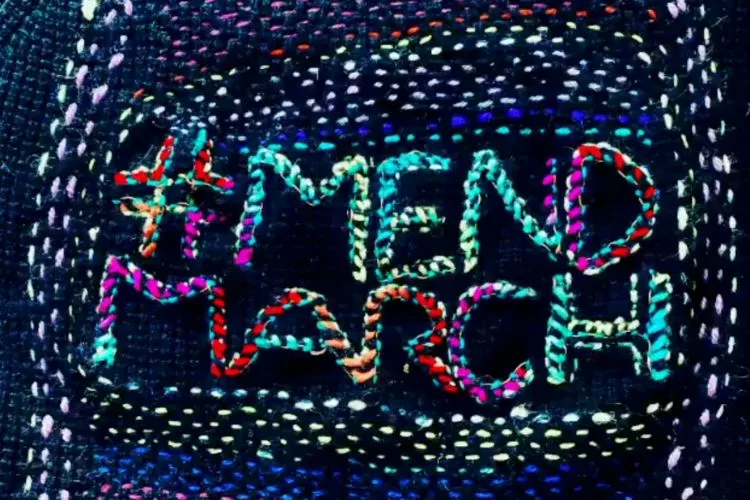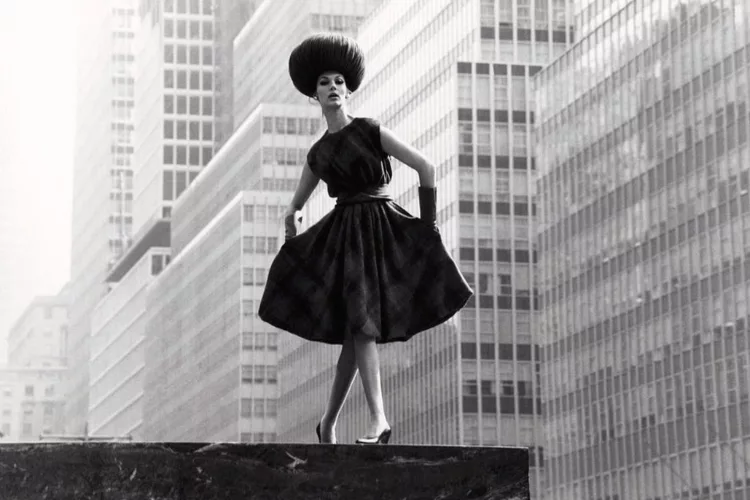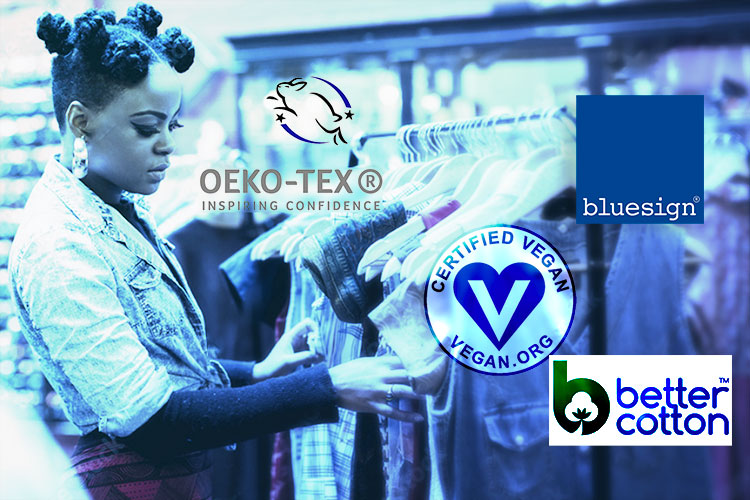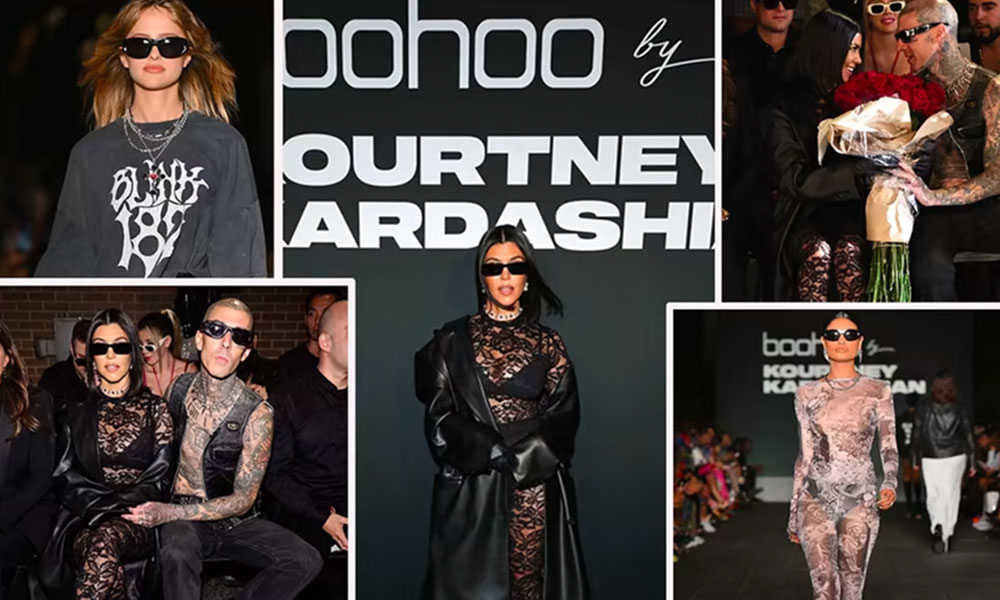
As of late, the fast-fashion retailer Boohoo has made quite a storm amongst the masses. The UK-based brand, privy to partnerships with influencers and past Love Island contestants, has unveiled its latest endeavor: a sustainability collection with Kourtney Kardashian Barker.
Boohoo and Kardashian Barker spoke to Womens’ Wear Daily for an exclusive. The reality TV star was eager to craft a collection with sustainability at the forefront; it presented an opportunity to discuss the ways in which fast fashion negatively affects the planet and what measures could be done to change the narrative. Boohoo co-founder Carol Kane stated, “When we spoke to the experts from across the industry, everyone said education was the key, and we could all see this was quite a unique opportunity to speak directly to millions of people across the globe and deliver something we don’t believe has been done before.”
Following Kane’s sentiment the brand is attempting to deliver. In addition to the line, viewers are encouraged to learn more by watching the four-part series detailing the entire project. From inception to production to its online debut Boohoo and Kardashian have seemingly put together a cohesive line.
But that couldn’t be further from the truth.
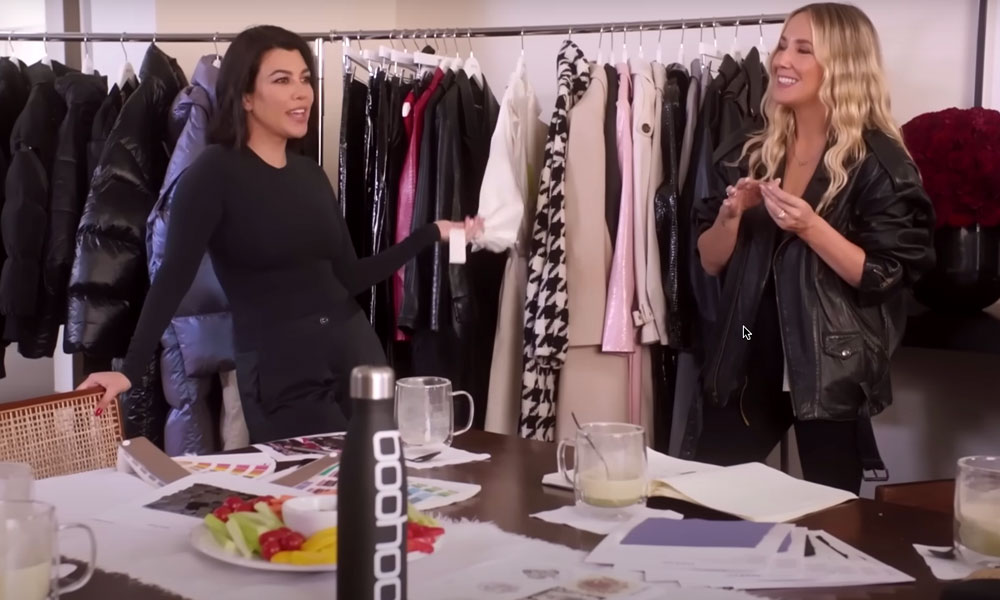
Behind the Influencer
In episode one we’re introduced to the eldest Kardashian who stands at the forefront as the company’s sustainability ambassador. But do we need an introduction? Whether you’re a part of her 196 million followers or not you already know her. Her name is often in headlines or trending on Twitter for her extravagant, outlandish habits and their negative environmental impacts.
A recent report released by the Los Angeles Times detailed the excessive water usage amid California’s ongoing drought with Kardashian Barker being one of the worst offenders among several other celebrities. Her lifestyle – which is full of private jets and yachts releasing carbon dioxide emissions – fails to align her with a sustainability title.
The series continues and leaves little to be desired. Through aesthetic light leaks the camera zooms in on product sketches and we see the Boohoo team in action. Kardashian Barker gets candid, explaining she doesn’t know everything or even has all the answers, but continues to say how she hopes to use her platform to “get people thinking” and reach people with “positive information”. She briefly touches on worker welfare and textile waste yet the weight of the words falls flat when the footage cuts to high fashion models. Despite her best efforts Kardashian stands by a learn-as-you-go mentality with the project and failed to do her research on the brand’s history and infamy within the industry.
Bad for Business
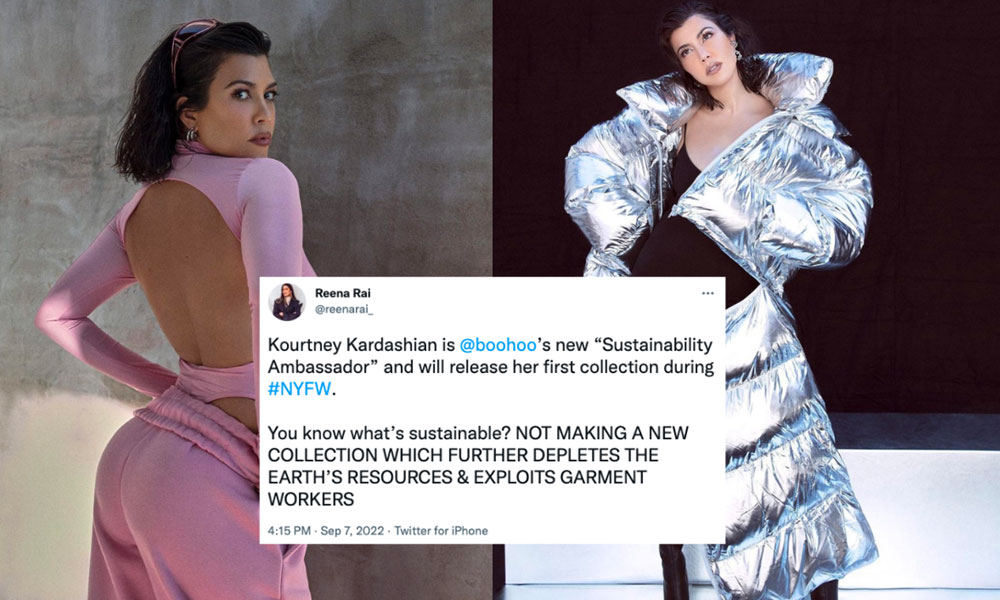
A simple search reveals the unfortunate ordeal; for years Boohoo’s Leichester, England factories have been putting its workers at risk. A joint report from rights groups Behind the Label, Share Action, and Labour Behind the Label brought forth that the company was operating under illegal practices of unsafe working conditions, irregular work hours, and forced overtime. Housed in a small, dilapidated warehouse, workers were subjected to job insecurity, remaining fearful of those overseeing the operations.
Its difficult to move on from a legacy of 60-hour work weeks with no benefits or sick pay. Workers, receiving below minimum wage, were expected to manufacture a wealth of synthetic fibers. The use of these materials is active; Boohoo prides itself on utilizing recycled polyester in its collection. Each label indicates virgin fibers and reused materials – elastane, polyurethane, and polyamide all of which are non-degradable. And there’s no end in sight. The Boohoo x Kardashian collaboration is currently on sale with over 40 pieces with another collection on the way. Consumer demand paired with a high production rate will continue to drive poor labor procedures and polyester in excess.
Similarly to other fast fashion labels, Boohoo has marketed sustainability as a trend rather than a conscious movement for a better world. The promise of ethical practices from the company and Kardashian Barker remains empty; there are no concepts or actions resulting in positive change. A true movement towards sustainability requires transparency, accountability, and less consumption rather than an influx of ribbed textures, cutout details, and printed mesh garments.
-Kennedy Smith
RELATED ARTICLES
It’s Not “Fast Fashion” vs “Sustainable Fashion” But This Instead
Influencers Need to Stop Fast Fashion Hauls
Can Influencers Change the Way We Think About Shopping?



